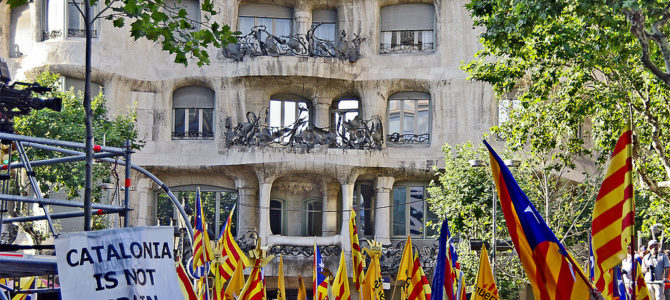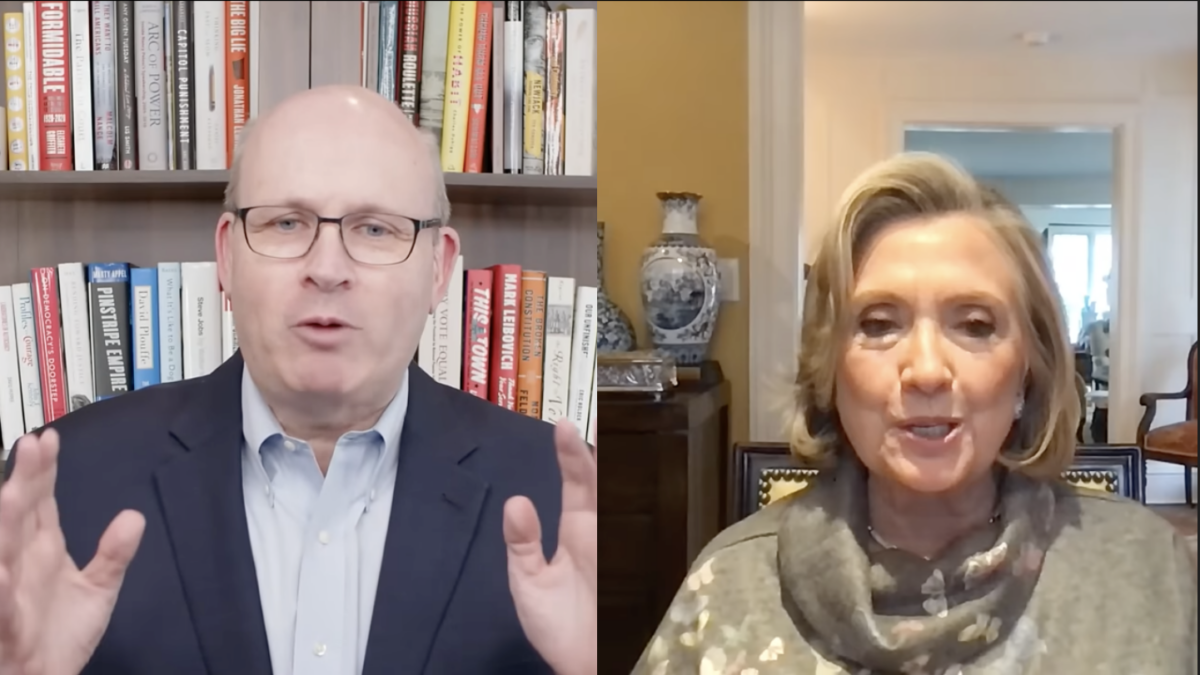
The situation in Catalonia is only getting messier, and more confusing. However, there are signs that the leaders of the Catalan independence movement are looking for an off-ramp. The question is whether the Spanish government will let them take it.
On Tuesday, Catalan leader Carles Puigdemont signed a declaration of independence from Spain, as expected. This came roughly a week after Catalonia held a referendum in which 90 percent of voters said “yes” to independence. Spain, of course, did not recognize the legality of the vote, even as Catalan political leaders said they would abide by the results of the referendum.
Puigdemont followed through with that promise, but there’s a catch. After signing the declaration, Puigdemont announced that he is suspending it for several weeks to leave room for re-negotiating with Madrid the nature of the region’s relationship with the central government. Recall that the purported impetus for last week’s referendum was ostensibly to gain fiscal autonomy from Madrid, to relieve it from the burden of supporting Spain’s poorer regions.
Yet, since the referendum began catching international attention in late September, an independent impulse to sever ties with Spain has taken center stage (surely to the pleasure of Catalonia’s more hardcore pro-independence factions), and the more moderate goals that first fueled the vote had taken a back seat.
The Strength of Catalonia’s Negotiating Position
It appears at first glance that Puigdemont is using the threat of independence to try to bring Spain to the negotiating table to achieve those original goals, and is playing the magnanimous negotiator, willing to put off some sort of clash. But it’s unclear if he really thinks he’s in that good of a bargaining position. After all, despite international sympathy following the violent police crackdown on Catalan voters, no country has come out in support of Catalan independence.
On Tuesday, France announced it would not recognize an independent Catalonia and on Wednesday Germany said the same. The European Union has made it abundantly clear that it would not consider an independent Catalonia for membership, and the president of the European Council, Donald Tusk, urged Puigdemont not to announce independence.
Then there are the people of Catalonia. The turnout for the referendum was a paltry 43 percent, and those who abstained are thought to have done so as a protest against what they saw as an illegitimate vote. A significant portion of Catalonia does not want to sever ties with the Spanish government. On Sunday, they made this fact known by taking to the streets of Barcelona to protest the planned announcement—reportedly hundreds of thousands came out in support for a unified Spain.
The leaders of the independence movement must see that there’s no way forward. Puigdemont’s decision to suspend the declaration of independence should be read as him seeking a way to back down from an all-out confrontation with Madrid, which Catalan would of course lose.
Spain’s Prime Minister Reaches for the Big Gun
So, where, exactly does that leave things? That’s what Spain’s Prime Minister Mariano Rajoy wants to know. On Wednesday, Rajoy asked the Catalan government to clarify its position and claimed that the independence leaders are deliberately trying to sow confusion. While asking for clarification, Rajoy also dropped a not-so-veiled threat.
He said he needed to know what Catalonia’s intentions are so he can decide whether Article 155 of the Spanish constitution can legally be invoked. Article 155, which is sometimes referred to as “the nuclear option,” allows the Spanish government to revoke autonomous status should a region declare independence.
His words are meant to put the final nail in the coffin of the independence movement by telling its leaders that not only will they not succeed in gaining independence, but they could be stripped of the autonomy they do have if they risk such a move. Yet perhaps the prime minister should have just let the coffin close on itself.
If Rajoy evokes Article 155, it would reverberate powerfully throughout not only Catalonia but the other 16 autonomous regions of Spain as well. Catalonia (and the Basque Country) has enjoyed autonomous status since the late 1970s following the death of the dictator Francisco Franco, who abolished regional autonomy when he took power in the late 1930s. The other regions were gradually granted autonomy over time.
Rajoy’s warning on Wednesday hearkens back to the centralized state under Franco, even if just as a weak echo of it and no matter how unfairly—after all, the regions entered the system of autonomy knowing full well what the rules were. Rajoy wants to remind the regions of Spain that their autonomy can be stripped if they upset the careful balance constructed during the process of democratization in the late 1970s and early 1980s. But doing so, while technically legitimate, is poorly advised.
Even if it’s just an empty threat to frighten the Catalans into submission—and scare off any other would-be regional independence movements—Rajoy is making a mistake. Madrid needlessly strengthened the independence movement last month by seizing ballots, raiding Catalan government offices, and arresting high-ranking Catalan officials. Those authoritarian tactics only emboldened the movement and boosted support for the vote by seeming to justify the calls for independence. Now, Madrid’s continued heavy-handedness may be doing something similar.
The independence movement seems bound to fizzle given the lack of international support and the divisions with Catalonia itself. But rather than allow Catalan officials to back down, the Spanish government wants to punish and scare them, thus validating many of the concerns of the Catalan government and pro-independence Catalonians. The move could add fuel to the fire. Once again, Madrid is choosing the wrong way to deal with a wayward Catalonia.
A version of this essay first appeared in The Federalist’s daily foreign policy newsletter, INBOUND. You can sign up for a one-week trial here.









